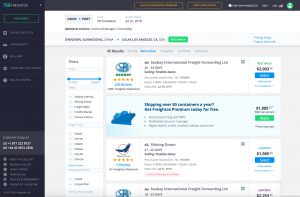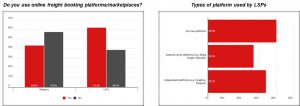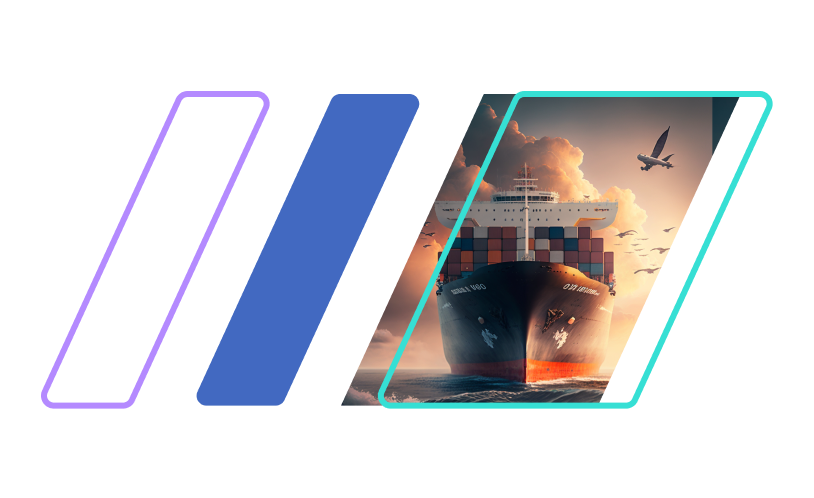This year alone, Maersk has accelerated its direct-to-shipper strategy, digital forwarders have raised massive rounds (like Flexport’s billion-dollar injection), and platforms for forwarders and carriers – big and small – have continued to pop up almost daily, at least that’s how it seems.
Logistics professionals have adapted incredibly well to this new age, but some lingering doubts remain. In their latest Global Freight Forwarding report, Ti assessed whether digital platforms, digital forwarders, and freight marketplaces were existential threats to traditional forwarders. Intrigued, here’s our summary of the key highlights – of course, we couldn’t help ourselves from expanding on them a bit.
Digital Platforms: Threat Or Opportunity?
The report concluded, unsurprisingly, that digital platforms are enablers removing inefficiencies long plaguing the industry. Some, such as WebCargo for forwarders and airlines, are white-label platforms, and often the result of a digital startup’s pivot (think Haven and Kontainers).
They are also ideal as cost-effective channels for picking up ad hoc business and smaller shippers. And with the globalization and the explosion of ecommerce, “the volume of shipments has increased and commensurately the number of shippers and shipments”. That is, the new platforms are the crucial link connecting forwarders (both scalably and to expected service-levels) with their fastest-growing market.
From our perspective, internally developed forwarder platforms like Agility’s ShipA Freight and Kuehne + Nagel’s Freight Net show just how far global forwarders have already developed their service. But carriers are awake and making moves as well. Maersk has boldly invested in digital forwarder FreightHub and when chose its digital forwarder businesses (Twill Logistics) over Damco to bring in-house.
Freight Marketplaces: Threat Or Opportunity?
Ti summed up freight marketplaces as “facilitators that do not aim to compete with forwarders, rather to improve the processes for them and allow them to offer a more competitive service”. Essentially freight marketplaces are pipes connecting logistics service provider sales and management with importers, they improve speed and breadth of access to a range of providers and shipping solutions. Nothing of an existential threat, here.

From our perspective, the best of breed marketplaces will keep raising the bar, providing fully integrated shipment management, etc.
Digital Forwarders Threat Or Opportunity?
To summarise the report, digital forwarders and most top global forwarders share the same objectives in striving to offer Amazon-level customer service and in automating as much of their back office as possible. No doubt, digital forwarders have an advantage with technology. But to become true industry contenders, they must also excel with four other key attributes – customers and volumes for scale, knowledge, global networks, and shipment responsibility. It’s unclear how many digital forwarders will rise to the challenge, but their mere existence pushes global forwarders to change, making them part of the industries evolution rather than a direct existential threat.
We concur with this view. Digital freight forwarders are essentially new entrants. Budding competitors for now, but soon, to stay successful, all forwarders will be ‘digital forwarders’.
Are Forwarders Using The New Platforms/Marketplaces?
As compelling as the assessment, the proof is in the eating. Ti also ran a survey on the take-up of the new platforms and marketplaces. Although volumes booked or shipped via digital platforms is still low, 61% of forwarders are now users. The majority of that use is on their own or a carrier’s platform, but 34% of them shared they are also using independent platforms.

“We can also see that some digital platforms have gained quite good traction in the market, … the top three are K+N FreightNet, Freightos, and Flexport. It is interesting that one is a digital offering of a traditional forwarder; one is an ‘independent’ and one is a new breed, digital forwarder. This would suggest that the various types of digitalization have a place in the market.”
So, what did the survey prove? Well, with such a diverse digital environment and impressive take-up, looks like forwarders are casting away any lingering doubts.



